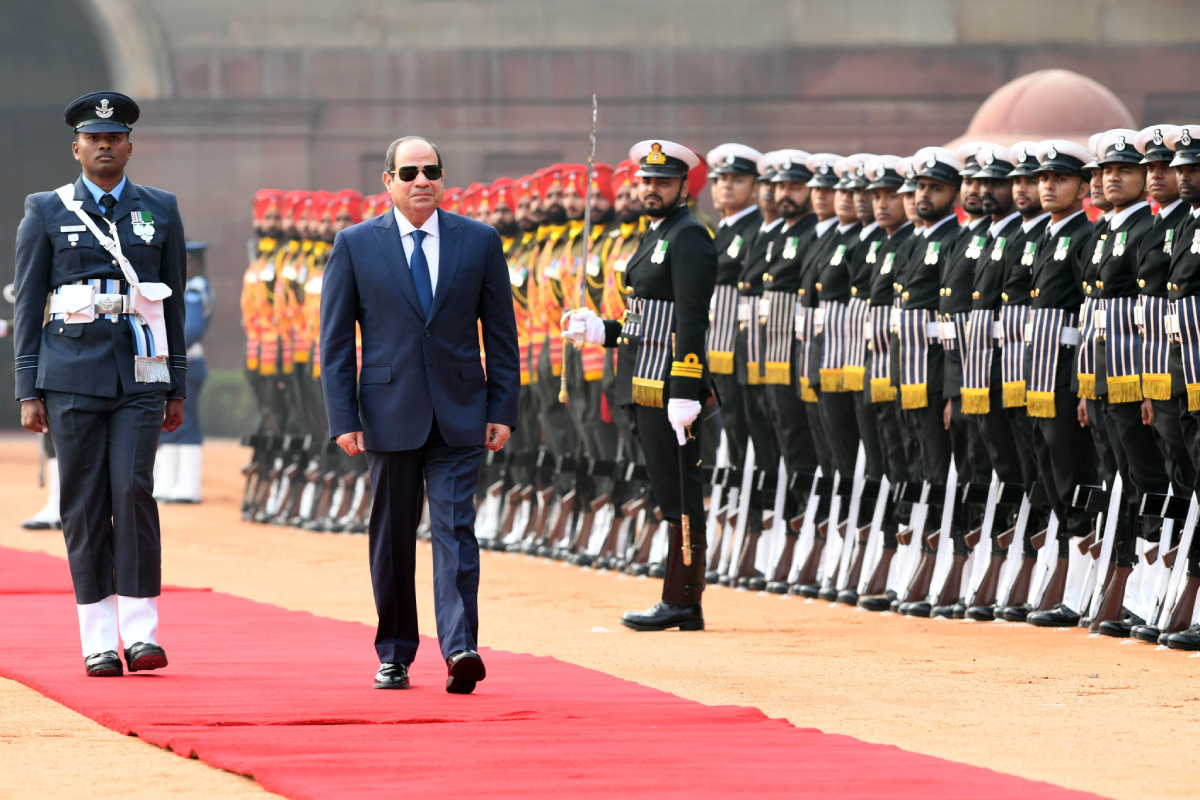

India, Egypt are both civilisational states with distinct national identities, says an Egyptian expert

A US-based Egyptian strategic expert says India should bring Egypt into the strategic club I2U2 – comprising India, Israel, the UAE and the US.
Mirette F Mabrouk, Director of the Egypt Program at the US-based think tank Middle East Institute, made the remarks shortly after Egypt expressed strong interest in a defence partnership with India during Egyptian President Abdel Fattah El-Sisi’s state visit to India from January 24 to 27.
Calling Egypt and India natural partners, Mabrouk, who was the founding publisher of ‘The Daily Star Egypt’ (now ‘The Daily New Egypt’), opined, “India should look into bringing Egypt into the I2U2 countries, all of whom have strong diplomatic, security and institutional ties with Egypt.”
“Egyptian/Indian security cooperation can help secure maritime security from the Indian Ocean to the Red Sea and Gulf of Suez and Egypt is potentially an ideal hub for Indian defence sales,” Mabrouk told The New Indian.
“Culturally, there are many parallels; they’re both civilizational states with distinct national identities,” Mabrouk said, recalling the partnership of Egyptian and Indian leadership in the establishment of the non-partisan group Non-Aligned Movement during the cold war.

“While they both enjoy excellent relations with the West, they both see the need for strong alliances and networks between developing countries that have more in common with each other. The potential for trade and cooperation is enormous, particularly in security and pharmaceuticals.” she said.
In Egypt, which is reeling under severe economic stress, the Army has its finger in almost every pie, ranging from hotels, gas stations, infrastructure and pharmaceuticals. The Afro-Arabian nation of about 102 million, which is currently facing high inflation and a crunch in foreign direct investment, is in the process of receiving financial assistance from the International Monetary Fund (IMF) to bring back economic stability. During President El-Sisi’s visit, India and Egypt set a plan for diversifying business and crossing the mark of $12 billion in bilateral trade.
Commenting on the economic condition in Egypt, Mabrouk said, “Among the conditions attached to the latest loan from the IMF was a free float for the Egyptian pound.”
“The pound is pegged to the US dollar, and that devaluation has seen the price of the pound plunge against the US dollar, leading to spiralling prices, inflation and a shortage of hard currency due to hoarding,” she said.
“Egypt’s Central Bank has acted, letting the pound slide to cut off the black market and raising interest rates. As a result, Egypt is now seeing an inflow of hard currency and it is also scrambling to make its investment climate significantly easier and more attractive for foreign direct investment,” Mabrouk said.